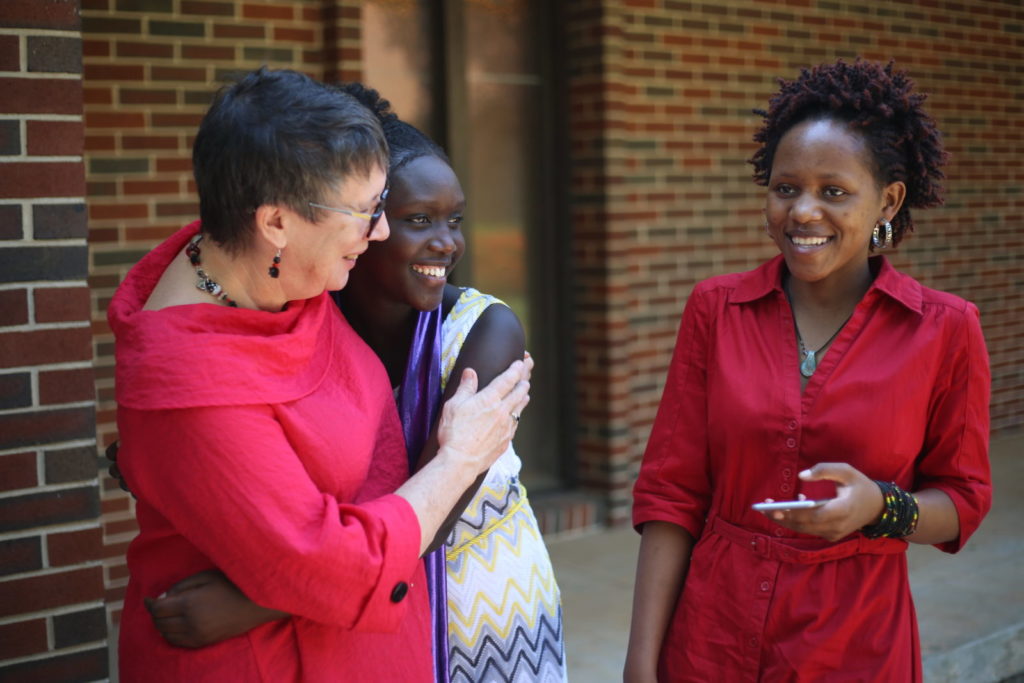Thank You, Teachers

by Staff | March 27, 2020
I’ve been thinking a lot about learning today. I happen to be a person who loves learning new things. I always loved school—no doubt why I find myself leading one—and my teachers (or at least most of them). Even after finishing my Ph.D., I find myself often thinking about all the new things that I would want to go back to school and study. But, even for me, the amount of learning required since the COVID-19 crisis began has been an exhausting challenge. I didn’t use Google Hangouts or Chat regularly before. I never scheduled virtual meetings on Google Meet or Zoom. I had never tried to teach a guided reading class online. I never ran staff meetings online, and I certainly never had to manage meetings with my dog and family members around. Most of us are being asked to learn a lot right now and can be thankful if we are fortunate enough to have teachers of all kinds (including kids) who are willing to help us.
This morning, as I led our team’s morning huddle, I shared with the group how I had been noticing that most Facebook posts, television conferences, and news updates never mentioned teachers as one of the important community responders during the COVID-19 crisis. I haven’t seen people thanking teachers for their continued and important work with students and families day after day, even as they care for their own families and try to teach their own children. I know that teachers are not serving on the frontlines at hospitals, but day after day, they enter homes and families through their online programs and platforms—the ones they have likely never used before—and are engaging with students and families during a time of crisis.
Teachers see and hear when students are struggling or hurt, when they don’t have food, or when they are scared or sick. Teachers hear about parents who are out of work or are afraid of losing their homes. Teachers have to balance being open and honest with students while also encouraging them to believe that we will get through challenges and obstacles.
A great deal of research regarding secondary traumatic stress among teachers has been published in the last two years. Data shows that more than 50% of students in the U.S. have experienced trauma, and teachers often take on these traumas as they get to know students and families and as they engage students in social, emotional, and academic learning. Too often, teachers are not taught or supported in this work; they are not given the knowledge and tools they need to deal with the stress of trauma at school. At GVP, we are committed to providing teachers with the professional development and support they need to practice self-care and to take up trauma-informed and restorative practices with students inside and outside of school.
Today, teachers face additional challenges. They must figure out how to maintain strong, positive relationships with students when they can’t physically be near them; at the same time, they must figure out how to teach them using unfamiliar tools and technology. Our teachers at GVP have not practiced technology-mediated instruction or distance learning before. That is not typically recommended as a best practice for language learners. Our students have used technology for practice, assessments, and for some assignments, but our teaching takes place in small classes with lots of scaffolding, support, and social interaction. GVP’s instructional methodology is grounded in constructivism. We believe that learning is socially constructed in and through active participation and collaboration with others. Now, we are learning and practicing how to take up these same approaches in our virtual school model.
One of our GVP Core Values is lifelong learning. This value is core to our work in community and is an important aspect of strengths-based learning. At GVP, we believe that all teachers are still students and all students are also teachers. We practice learning from and with each other and remember that each one of us comes with unique strengths, experiences, and knowledge to share and teach. If we accept that we are always learning, it releases us from the expectation of perfection and opens the door to risk-taking and trying new things—like we must do now. That same acceptance can prevent us from viewing some people as knowers and others as people who know nothing. I have seen our staff and teachers creatively coming together to teach and to learn over the past 10 days. They are generously sharing their knowledge and strengths and supporting each other in learning how to be a teacher in this new time.
We found out yesterday that local schools will remain closed at least until April 24. While it makes sense and really isn’t a surprise, it feels hard to fully grasp right now. I cannot help but wonder how our country and our community will have changed during that time. So much is changing so quickly.
Despite the challenges and all the changes, I am inspired by and deeply grateful for our teachers at GVP and for all the teachers like them who are logging in online each day or calling and emailing students and families during this time. I appreciate their efforts to maintain some sense of constancy in their students’ lives, their commitment to community and learning, and their work for the common good and for our future.
I invite you to continue learning with us and am sharing some online resources we have found helpful regarding trauma-informed care during COVID-19:
A Trauma-Informed Approach to Teaching Through Coronavirus | Teaching Tolerance
Parent/Caregiver Guide to Helping Families Cope With the Coronavirus Disease | The National Child Traumatic Stress Network
Community Incident Response | Trauma Informed Oregon
“A trauma-informed approach to teaching through coronavirus — for students everywhere, online or not” | The Washington Post
“A psychologist’s science-based tips for emotional resilience during the coronavirus crisis” | The Washington Post
